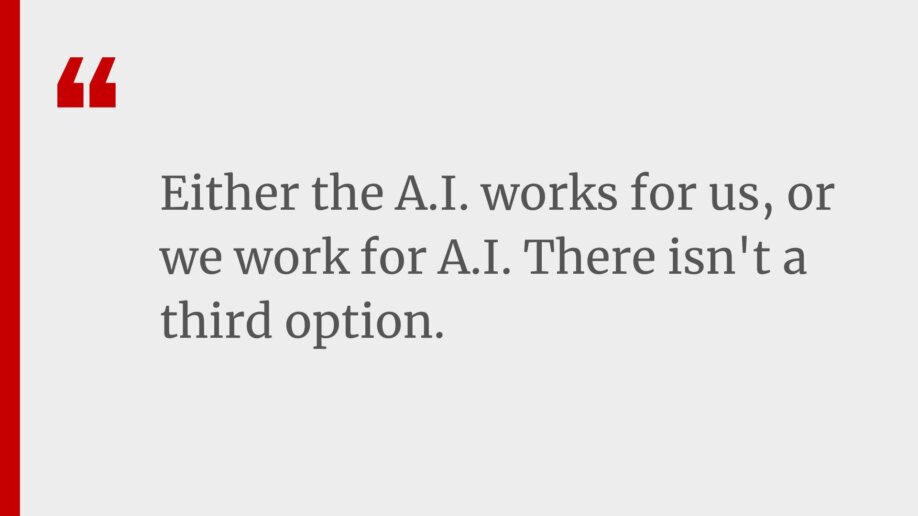I’ve spent the last two weeks running in circles from one interview to the next with podcasters, trade publications, radio stations, and news organizations all over the globe helping anyone who will listen to better understand why these strikes are so important to the future of our way of life as creatives. But rather than just discussing all of the problems, I believe in also sharing solutions.
When it comes to, “What are we supposed to do now?” there aren’t a whole lot of answers out there right now. I’m hoping I can change that.
In a recent interview I did with Fox News, we discussed whether artificial intelligence really is the villain in this battle. (I don’t think it is.)
“If you’re not at the top 5% of [your] craft, I don’t think you’re going to make a living with one singular career path. And I think we’re at the point where the only strategy that makes sense is you have to diversify your career portfolio and find multiple avenues for how to both provide value to people and earn an income on it in return. And I think that that’s where AI comes in, both as the foe and a friend.”
Then within 24 hours the game changed – AGAIN – when we were all introduced to Showrunner, an A.I. program that created an entire episode of South Park with only a few simple prompts from a single person. (If you haven’t watched it yet, this is worth 5 minutes to understand how dire this battle for creative control has become.)
It’s very clear that artificial intelligence is advancing at a speed we can no longer comprehend (or control), and it’s also very clear that getting ahead of this conversation before it’s too late is no longer possible.
A.I. isn’t going anywhere. And it’s going to change EVERYTHING.
If the argument we’re making as artists, creatives, and storytellers is that we must regulate A.I. so that it doesn’t replace us, we’ve already lost. Because the premise of our argument is that we can be replaced. History has proven that if any means of production (humans included) can be replaced with technology, that is the direction it will evolve.
We must instead be making the argument that we are not replaceable, and instead demand regulations that protect us as the authors and owners of our ideas. I’m fully supportive of using A.I. as another creative tool that helps us synthesize our own ideas and achieve our visions (especially if we can do so in less time and have a life outside of our jobs). But not at the expense of becoming the janitors at the end of an assembly line where our only role is to polish an otherwise digital turd.
Ultimately I believe the entire conversation around AI comes down to this:
Either the A.I. works for us, or we work for A.I. There isn’t a third option.
I truly believe in my heart that we are not replaceable for one simple reason: Great storytelling helps us better understand the human experience. And artificial intelligence will never understand the human experience. The best actors, writers, directors, editors, composers, etc, all possess one common skill that unites us as humans and separates us from the machines: Empathy.
Until A.I. has the ability to process and react to the subtleties of human emotion and truly empathize with us, our jobs are safe. Once A.I. has crossed the point of singularity and can understand empathy and tell unique and new stories that don’t require feeding previous information into large language models (LLM’s), it’s game over.
I think we’re safe for a long time to come…as long as we’re willing to abandon specialization as our only means of making a living and instead embrace diversification as our best change at making a life.
So what do we do next?
As I shared in my presentation at the Jump|Cut Conference last Saturday, we need to stop frantically skating to where the puck is now and instead skate to where the puck is going next.
While everyone else is preparing for The Rise of the Machines, we should be preparing for The Rise of the Generalists.
No matter which direction these negotiations take, it’s abundantly clear that we’ve reached an immensely important inflection point in the entertainment industry.
We’re at the point where “The Gig Economy” is now just “The Economy.”
The days of climbing a singular career ladder are over.
It’s now on us to design our own unique paths.
And those who succeed will do so because they diversified their career portfolios with a multitude of income streams, a more generalized set of skills and talents, and a broad network of relationships.
Over the coming weeks and months I will be interviewing a multitude of experts to help us navigate this uncharted territory and diversify our careers so that we can ultimately live more balanced, sustainable, and fulfilling lives.
Who would you like to hear from?
What can I help you learn next?
Click here to send me a message
I’m looking for any and all suggestions for future content, workshops, courses, or any other way I can help you emerge on the winning end of this war.
Be well.
Zack Arnold

